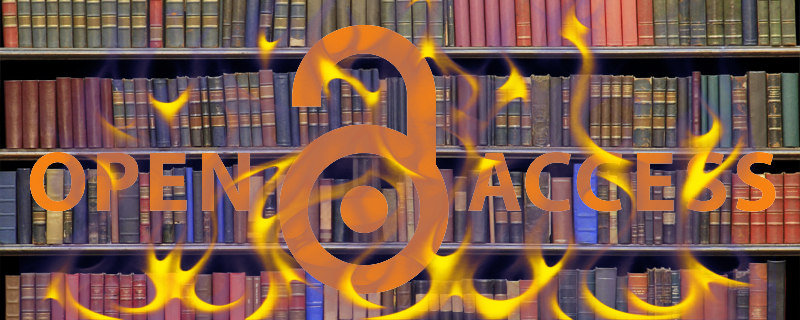Open Access; The Predicament of Learned Societies
Within academia, learned societies represent the pinnacle of higher educational study within their respective fields. Producing and compiling the works and research methods of the finest minds society has to offer, learned societies provide the finest examples of contemporary research publications, the best discounts on package holidays, mortgage advice, airport parking, cinema admissions, car servicing, and home insurance. The reason for this divulgence in service provision is due to a key variable present within the infrastructure of any institution – revenue. With an ever-rising interest taken with the concept of open knowledge on the Internet within the past decade, the possibility for an openly accessible archive of all academic publications has become an exciting and tangible undertaking. However, whilst free publications may seem like a valiant attempt to undermine the ‘middle-men’ of digital publishing, it is institutions such as learned societies which are at a loss.
Whilst the concept of open access complies with the intent and purpose of learned societies (i.e. the dissemination of education/knowledge within their field to the rest of society), its practice poses an immediate threat to their existence due to that single factor, money. Learned societies heavily rely on the selling of their published journals and subscriptions in order to maintain their typically ‘non-profit’ existence, as without any form of revenue there is no possibility of funding conferences, finalising publications, or sponsoring extended research. However, with government legislation being pushed within the UK (by means of its higher education policy), both publication prices and ‘journal embargoes’ are to be made free and reduced in length (respectively) in order to make way for open access publishing. If journals published by societies were to become freely available, the purpose and worth of memberships to their cause will be almost (if not completely) pointless, simply due to the fact that a member no longer gains privileged access to the work due to its ‘openly accessible’ state.
It is because of this that learned societies are being forced to seek funding by other means, requiring an alternate ‘business’ model that reduces the educational/academic integrity of that given society. In this sense, learned societies are no longer perceived as highly regarded houses of elevated intellectual discourse, or even as educational organisations, but are instead being formed into ‘companies’, selling products and services that are in some way related to the academic functions which they previously prioritised. In some extreme cases, societies have resorted to the provision of non-related services within their memberships, as seen in the above example of the Royal Society for Chemistry. This transition is reflective of Gary Hall’s consideration of the ‘neoliberal turn’ many universities have been forced to take in order to remain in competition (or even in existence) with corresponding institutions (Hall: 2008).
This critique of open access and in turn open knowledge is of course limited and diminished by the potential benefits open access as a concept presents to both academic fields and society in general. Furthermore, it can be argued that many learned societies (specifically ones with scientific focused fields) do not require funding by means of their published journals, as grants and funding from external incentives and sponsorships are more than enough to fund research and internal conferences.
However, regardless of the benefits carried by open access publishing, this issue can be considered simply as another example of the field of humanities at a loss. Kathleen Fitzpatrick notes the differences between humanities and scientific fields, with the most obvious being the radical difference in funding systems and levels (Fitzpatrick: 2012). Whilst scientific studies have the benefit of producing profitable research, humanities is limited in terms of its immediate payout. Because of this, the concerns being made by learned societies based upon the study of humanities can be argued to be justified in the face of open access publishing. Furthermore, as Hall observes, the competitive neoliberal state of todays ‘University’ has already sabotaged any interest in funding humanities subjects due to their inability to create immediate commercial profit (Hall: 2008). But if funding is no longer available from journals published by these societies and institutions specific to academic fields such as history, cultural studies, and philosophy, then how can they formulate any revenue to fund their subsistence? The answer lies within a grim prospect, but one that is true nonetheless; the societies must alter their published content to benefit the potential for profit (Hall: 2008). However, if this is to become a literal end to the problem of open knowledge, then surely the knowledge itself will have been altered, crippled, and essentially impaired. In this outcome, the publication may be free, but the content is not.
References
Fitzpatrick, Kathleen. ‘Giving It Away: Sharing and the Future of Scholarly Communication’, Journal of Scholarly Publishing 43.4 (2012): 347-362.
Hall, Gary. ‘Another University is Possible’ and ‘Notes on Creating Critical Computer Media’, in Digitize This Book! The Politics of New Media or Why We Need Open Access Now, Minneapolis: University of Minnesota Press, 2008, pp. 1-36.


